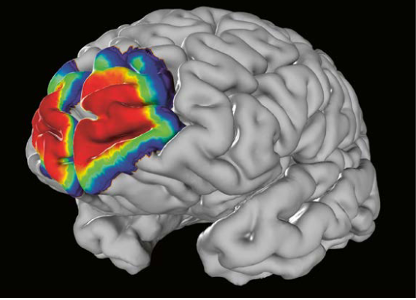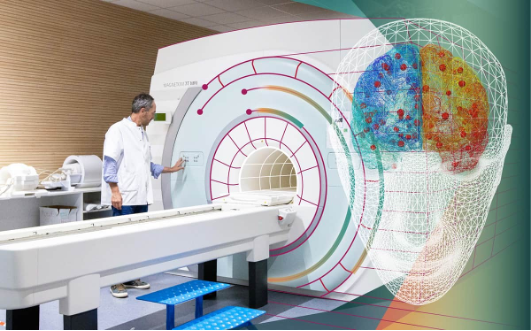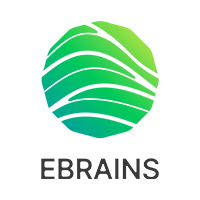- Press Release
Human Brain Project celebrates successful conclusion
12 September 2023
The EU-funded Human Brain Project (HBP) comes to an end in September and celebrates its successful conclusion today with a scientific symposium at Forschungszentrum Jülich (FZJ). The HBP was one of the first flagship projects and, with 155 cooperating institutions from 19 countries and a total budget of 607 million euros, one of the largest research projects in Europe. Forschungszentrum Jülich, with its world-leading brain research institute and the Jülich Supercomputing Centre, played an important role in the ten-year project.

“Understanding the complexity of the human brain and explaining its functionality are major challenges of brain research today”, says Astrid Lambrecht, Chair of the Board of Directors of Forschungszentrum Jülich. "The instruments of brain research have developed considerably in the last ten years. The Human Brain Project has been instrumental in driving this development - and not only gained new insights for brain research, but also provided important impulses for information technologies.”

HBP researchers have employed highly advanced methods from computing, neuroinformatics and artificial intelligence in a truly integrative approach to understanding the brain as a multi-level system. The project has contributed to a deeper understanding of the complex structure and function of the brain and enabled novel applications in medicine and technological advances.
Among the project’s highlight achievements are a three-dimensional, digital atlas of the human brain with unprecedented detail, personalised virtual models of patient brains with conditions like epilepsy and Parkinson's, breakthroughs in the field of artificial intelligence, and an open digital research infrastructure – EBRAINS – that will remain an invaluable resource for the entire neuroscience community beyond the end of the HBP.

Researchers at the HBP have presented scientific results in over 3000 publications, as well as advanced medical and technical applications and over 160 freely accessible digital tools for neuroscience research.
“The Human Brain Project has a pioneering role for digital brain research with a unique interdisciplinary approach at the interface of neuroscience, computing and technology,” says Katrin Amunts, Director of the HBP and of the Institute for Neuroscience and Medicine at FZJ. “EBRAINS will continue to power this new way of investigating the brain and foster developments in brain medicine.”

“The impact of what you achieved in digital science goes beyond the neuroscientific community”, said Gustav Kalbe, CNECT, Acting Director of Digital Excellence and Science Infrastructures at the European Commission during the opening of the event. “The infrastructure that the Human Brain Project has established is already seen as a key building block to facilitate cooperation and research across geographical boundaries, but also across communities.”
Click through more photos from the event below:
Watch the recap video below:
Further information about the Human Brain Project as well as press photos can be found here: https://fz-juelich.sciebo.de/s/hWJkNCC1Hi1PdQ5.
Results overviews:
- “Human Brain Project: Spotlights on major achievements” and “A closer Look on Scientific Advances”
- “Human Brain Project: An extensive guide to the tools developed”
Examples of results from the Human Brain Project:

As the "Google Maps of the brain", the Human Brain Project makes the most comprehensive digital brain atlas to date available to all researchers worldwide. The atlas by Jülich researchers and collaborators combines high-resolution data of neurons, fibre connections, receptors and functional specialisations in the brain, and is designed as a constantly growing system.

13 hospitals in France are currently testing the new "Virtual Epileptic Patient" - a platform developed at the University of Marseille in the Human Brain Project. It creates personalised simulation models of brain dynamics to provide surgeons with predictions for the success of different surgical treatment strategies. The approach was presented this year in the journals Science Translational Medicine and The Lancet Neurology.

SpiNNaker2 is a "neuromorphic" computer developed by the University of Manchester and TU Dresden within the Human Brain Project. The company SpiNNcloud Systems in Dresden is commercialising the approach for AI applications. (Image: Sprind.org)

As an openly accessible digital infrastructure, EBRAINS offers scientists easy access to the best techniques for complex research questions.















